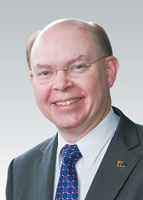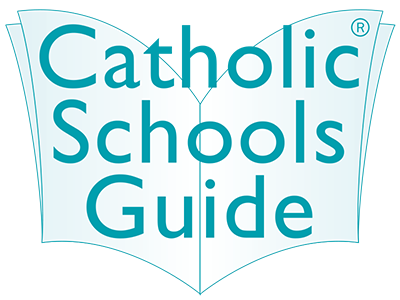News and Media

A New Learning Approach for the 21st Century by John Phelan
From the time of the industrial revolution through to the end of the 20th century, schools didn’t change all that much. There were advances in curriculum and technology (especially with the widespread introduction of computers in the 1990s), but the basic principle of classroom learning remained the same: the wise teacher stood at the front of the room and imparted knowledge to the students, who (hopefully) took it in.
But in the 21st century, technology has changed the way people learn. It’s also changed the
way schools teach and what is taught. That’s because schools need to prepare our young people for a rapidly-changing world. Many of the jobs today’s students will have later in their careers have not even been invented yet.
That’s a real challenge for schools, which are charged with preparing students for a future that’s still to unfold. So, as well as the basics of literacy and numeracy, Catholic schools have developed wide-ranging curriculum options, designed to provide students with a kaleidoscope of learning opportunities that will provide them with a firm foundation for their future ‘learning or earning’.
Learning and teaching in Catholic schools is viewed and implemented through the beliefs and values outlined in the Brisbane Catholic Education Learning Framework, which states that “learning is… visible, active and interactive, to create knowledge and meaning”.
Brisbane Catholic Education is implementing an Excellent Learning and Teaching strategy, which aims to improve student learning outcomes in a measurable way. There is a wealth of data available on student performance, and this is used to determine areas of the curriculum where extra emphasis is needed for each student.
Catholic schools understand that every child is different, with different abilities, talents, interests and aspirations. So, our students are provided with a range of skills that will help them navigate the future of work.
Young people today can be expected to have many different career roles during their lifetime and that’s why Brisbane Catholic Education is emphasising the importance of Vocational Learning.
If our students are to be successful and reach their potential in the future, schools must help them to develop a portfolio of skills that can deepen over time and become highly portable across many roles and industries.
Schools must teach students how to think – not what to think – and how to adapt their knowledge to the situations in which they find themselves.
Important capabilities in all workplaces of the future will include communication, teamwork, problem-solving and self-management skills. In 2018, Brisbane Catholic Education launched a Vocational Learning Position which is looking at traditional career education in a completely new and much broader way.
Its focus is not what people traditionally consider as “vocational education”, which tends to be seen as skills-based training or work experience; Vocational Learning is a much broader concept and overhauls how schools help students by teaching adaptable capabilities as early as possible; providing more specialist career development staff in schools; designing tertiary pathway support; and providing work- related partnership opportunities.
The main difference from the previous approach is that this begins in Year 7 and is not restricted to just the final couple of years of secondary school.
It’s important to understand that this is not about students choosing specific career pathways early in secondary school; rather, it’s about our schools working with each student and their family to develop multiple skills that will connect them to the emerging workplaces of the future.
Vocational Learning helps each Catholic student to be better prepared for the economy of the future, so that they can become not just job seekers but job creators and be able to navigate more complex and challenging careers.
As the senior secondary years approach, each student is able to benefit from individual guidance from qualified staff in Catholic schools, who will ascertain their areas of interest for the future and advise them of the various academic and vocational pathways which are open to them. This includes senior subject selection as well as tertiary education options and workforce preparation pathways.
Catholic schools push students to do the best that they can; to establish high expectations for each student to maximise learning progress and achievement. Students are actively encouraged to believe in themselves and their abilities.
Schools individually celebrate student success at award ceremonies and presentations, reflecting the growth and development of students, as well as the important role played by the school in the wider community.
As a system, Brisbane Catholic Education celebrates student achievements regularly and especially on “Remarkable Moments Day” in November, where each school community has the opportunity to affirm its own students and staff on their remarkable learning achievements during the academic year.
Catholic schools embrace our role as the incubators of our future and will continue to focus on the growth of each individual student as we guide them to become all that they can be, in the rapidly-changing world of the 21st century.

John Phelan is Brisbane Catholic Education’s Manager of Communications and Marketing.
John attended St Joseph’s College, Gregory Terrace, then studied law and journalism, before working as a radio journalist and presenter in Queensland, New South Wales and Victoria. After serving as a member of the Queensland Parliamentary Press Gallery, John worked as a Ministerial Press Secretary in the state government, before moving into local government.
More than twenty years ago, John was one of the pioneers of school communications and marketing in Queensland, serving six years as Director of Public Relations and Marketing for Queensland’s largest independent school, John Paul College, before working in similar roles for the Anglican and Uniting Churches, and as Director of Admissions and Marketing at Brisbane Boys’ College. He ‘came home’ to Catholic education in 2008, joining Brisbane Catholic Education and spearheading its continuing growth and development.

